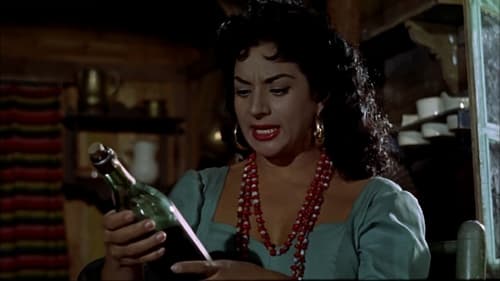
Flora
Jean Faran has the misfortune to run over with his car a young woman named Micaela. Once recovered from the fright, she invites him to her house to have a few drinks.

María Luisa

Margarida
The characteristic loves of Margarida and Clara, the distinct moral of Pedro and Daniel, the goodness of João Semana, and the dissidents, sensibility, tenderness, rituals and landscape involvement of the Minho.

Elena

Mercedes
María de la O leaves her family and her former boyfriend Miguel to go with a rich landowner who's supposedly in love with her...

Isabel
Right-handers Ricardo Puente, Juan Carmona and Rondeño II, which will take the alternative are advertised in the poster. The first is an old bullfighter, famous in the past, as now, bitter and full of rancor, lives with Paloma, a woman who is not resigned to continue to be the lover of a man who has fallen into oblivion. Carmona, the Bullfighter of fashion, has a major contract to fight in America, but his wife Isabel wants to reject the offer. Ana Maria, the sister of Carmona, hopes that his brother adopted its relations with Rondeno II; but Carmona was opposed because considers it it a bad Bullfighter

Laura
A tale of two families, the Mendozas and Alzagas, faced for generations by the water of a river separating their adjoining properties. Old grudges reappear when the two heirs fall in love.

Filoca
Candinho is a hillbilly who leaves the countryside, taking his donkey along, and goes to São Paulo, trying to find his mother.

Olívia
In the time of the "cangaceiros" in the badlands of the Northeast of Brazil, the cruel Captain Galdino Ferreira and his band abduct the schoolteacher Olívia, expecting to receive a ransom for her. However, one of his men, Teodoro, falls in love and flees with her through the arid backcountry chased by the brigands.

Durvalina
Tico-Tico no Fubá is a 1952 Brazilian comedy film directed by Adolfo Celi and starring Anselmo Duarte. It was entered into the 1952 Cannes Film Festival. The film is a fictionalized biography of Brazilian composer Zequinha de Abreu (1880–1935), who penned the song "Tico-Tico no Fubá" that became an international hit in the 1940s.

The administrator of an abandoned coffee farm and inveterate gambler saves money to buy the property, even knowing of the loving connections between his wife and the boss.







